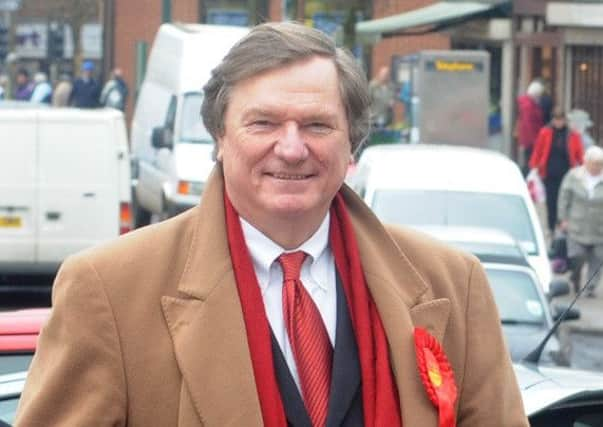Rebel MP who went against Blair slams '˜disastrous, predictable' war


Graham Allen, Nottingham North MP, was one of the key rebels in the Labour party to oppose the war when it went to a vote in 2003.
The long-awaited report on the Iraq Inquiry by Sir John Chilcot was released this week.
Advertisement
Hide AdAdvertisement
Hide AdIt investigated then-Prime Minister Tony Blair’s case for invading Iraq in 2003, how the Government handled the war and how it dealt with the aftermath.
Mr Allen said: “We said at the time and Sir John has said you didn’t need hindsight to see it was the best breading ground for terrorism.
“It opened the Pandora’s box of religious extremism that started fights between the Shia and Sunni Muslims and eventually led to the creation of that monster, Islamic State. It was a disaster and it was highly predictable.
“The vote whether to go to war was the biggest rebellion from one party in British politics history.
Advertisement
Hide AdAdvertisement
Hide Ad“On one level, I am proud of that, but on another level I am not, because Mr Blair did not consult and did not think things through.”
The report found Mr Blair had committed to support then US president George Bush’s campaign in the Middle East “no matter what”, and stated the case for war was insufficient.
Following the release, Mr Allen backed the findings that not only did Mr Blair agree to the invasion of Iraq on flawed intelligence, but was warned it would even put the UK at a greater threat from future terrorism,.
And, Mr Allen said, while Mr Blair showed remorse, his apology has fallen short.
Advertisement
Hide AdAdvertisement
Hide AdHe said: “Mr Blair apologised for the consequences, rather than the decision he made. The vote whether to go to war was the biggest rebellion from one party in British political history.
“On one level, I’m proud of that, but on another, I’m not, because Mr Blair did not consult and did not think things through.”
‘It was a disaster and predictable’
Mr Allen has stated previously: “Many of us worked for many months to obtain the vote.
“Some 122 Labour members voted against the war on the first occasion.
Advertisement
Hide AdAdvertisement
Hide Ad“Indeed the numbers went up on the second vote, which is unheard of, given the whipping operation against those who did not want us to go to war.
“It was not a gift of the Government; it was hard fought for.”
Ultimately parliament voted with Mr Blair, and the UK joined America to intervene in Saddam Hussein’s regime, although the main premise, that he was building an arsenal of weapons of mass destruction, has been shown to be flawed.
In his report, Sir John said, not only was the evidence minimal, but the intelligence was doubted by British agents who said sources were describing chemical weapons remarkably similar to the fictional nerve gas in the Nicolas Cage movie, The Rock.
Advertisement
Hide AdAdvertisement
Hide AdHowever, the report said they failed to warn the Government on the credibility of the information.
In his conclusions to the pre-conflict strategy, Sir John said: “In Mr Blair’s view, the decision to stand ‘shoulder to shoulder’ with the US was an essential demonstration of solidarity with the UK’s principal ally.
“In the Inquiry’s view, the diplomatic options had not at that stage been exhausted.” Military action was therefore not a last resort.”
He has stated previously: “Many of us worked for many months to obtain the vote. 122 Labour members voted on the first occasion, and indeed the numbers went up on the second vote, which is unheard of, given the whipping operation against those who did not want us to go to war. It was not a gift of the Government; it was hard fought for.”
Advertisement
Hide AdAdvertisement
Hide AdUltimately parliament voted with Blair, and the UK joined America to intervene in Saddam Hussein’s oppressive regime, although the main premise, that he was building an arsenal of WMD, has been shown to be flawed.
Not only was the evidence minimal, the intelligence was doubted by MI6 agents who said sources were describing chemical weapons remarkably similar to the fictional nerve gas in the Nicolas Cage movie, The Rock. But they failed to warn the Government on the credibility of the information.
In his conclusions to the pre-conflict strategy, Chilcot said: “. In Mr Blair’s view, the decision to stand “shoulder to shoulder” with the US was an essential demonstration of solidarity with the UK’s principal ally.
“In the Inquiry’s view, the diplomatic options had not at that stage been exhausted.” Military action was therefore not a last resort.”